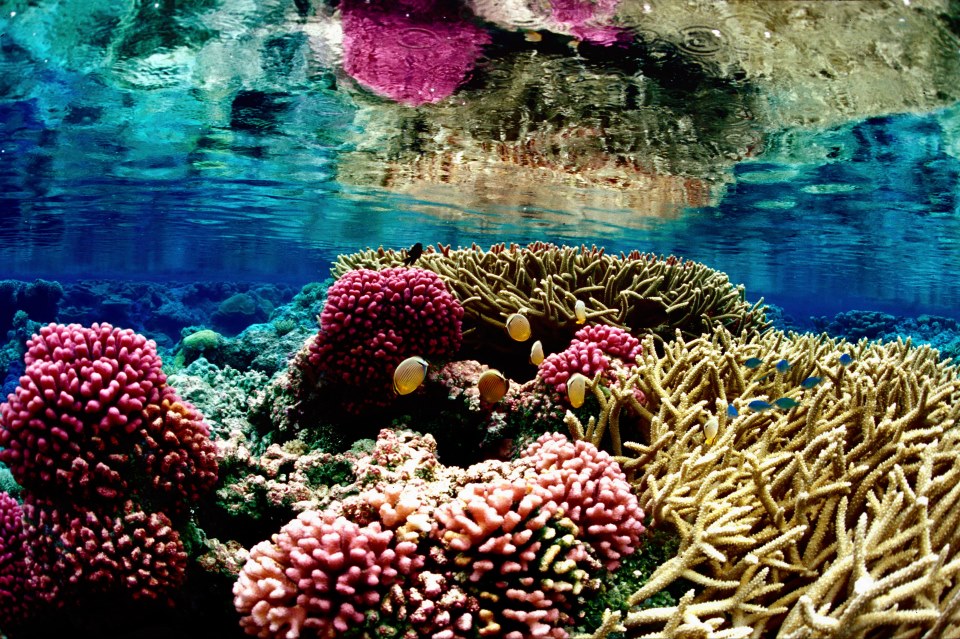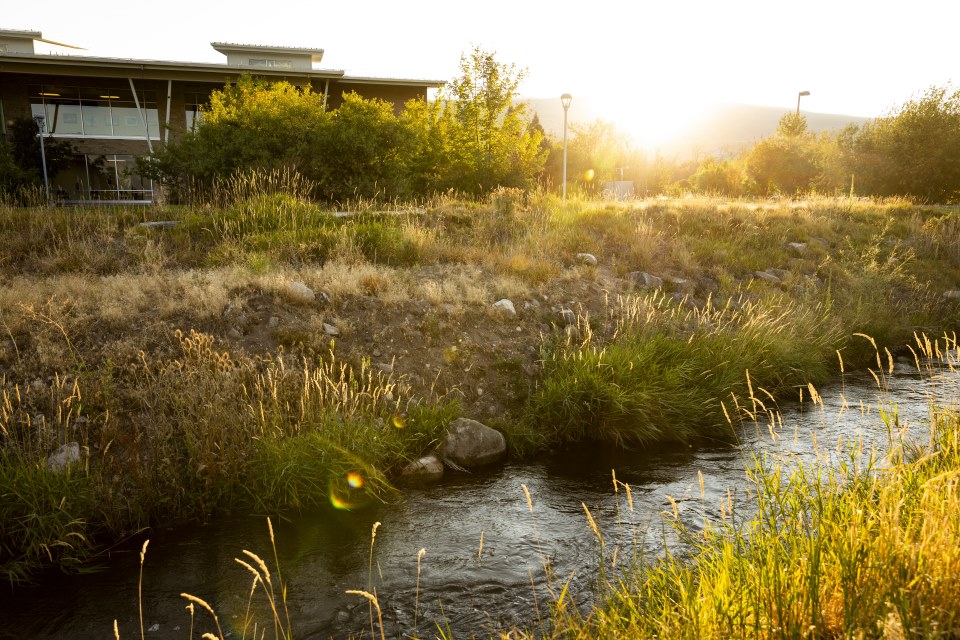

Protect Your Skin and Ecosystems

June 8th is World Oceans Day, and one way you can help protect our oceans and life below water is to choose ecosystem safe sunscreens. Many ingredients commonly included in sunscreen have the potential to cause harm to underwater ecosystems either as they wear off as we swim or down the drain when we wash the sunscreen off. You can help protect ecosystems by keeping the following in mind when purchasing sunscreen.
Look for mineral formulas. Zinc oxide & titanium dioxide are mineral sunscreens, that physically block sunlight, and are they more inert in the environment than chemical sunscreens. Physical sunscreens are also less irritating for those with sensitive skin. However, there is some evidence that "nano" mineral sunscreens may be harmful so you may want to avoid "nano" formulations.
Look for cream and lotion formulas free of mineral oil or other petroleum based ingredients. Spray formulas can contaminate the surrounding environment when you apply them. Mineral oil and other petroleum based ingredient do not readily biodegrade and may be harmful to ecosystems.
Look for unscented formulas. Scent, in the forms of natural fragrance, artificial fragrance, and essential oils can potentially harm ecosystems and irritate sensitive skin. Fragrances can also contain "hidden" ingredients, like parabens, as manufacturers are not required to disclose their fragrance formulations.
Avoid these ingredients: Oxbenzone (Bensophenon-3, BP-3), Octinoxate (Ethylhexyl methoxycinnamate), Octocrylene, Bensophenone-1, Benzophenone-1, Benzophenone-8, 4- methylbenzylidene camphor (4MBC), 3-Benzyliden camphor, Para-aminobenzoic acid (PABA, OD-PABA), Parabens, and Triclosan.
Additionally, you can reduce your need for sunscreen by wearing UPF clothing and avoiding peak sunlight hours of 10 am to 2 pm.
How to be Water Wise this Summer

Utah is facing tough drought conditions this summer, over 98% of the state is currently experiencing 'Severe Drought' or worse. These conditions could lead to worst-on-record conditions and lead Governor Cox to declare a State of Emergency on March 17. Read below for tips on how you can do your part to conserve water.
Indoors
- Run only full loads of dishes or laundry
- Reuse (unsalted & cooled!) cooking water to water your plants
- Fix (or request your landlord to fix) dripping faucets
- Shorten your showers
Outdoors
- Water container plants with a watering can instead of a hose
- Adjust sprinklers so they aren't watering sidewalks and driveway and only water at night
- in calm weather (or request your landlord to make these adjustments)
- Fix (or request your landlord to fix) any leaks or damaged sprinkler heads
- Follow the Utah Weekly Lawn Watering Guide
- Landscape using Localscape strategies or xeriscaping
- You can find more tips at the Slow the Flow website.
Fall 2021 Sustainability-Focused & Sustainability-Inclusive Courses

Expand your knowledge of sustainability and interconnected topics by enrolling in one of the many sustainability-focused or -inclusive courses that UVU is offering during the Fall 2021 semester. From community health, to civil engineering, to business management UVU is proud to offer a wide range of courses to help you learn more about sustainability.
BIOL
- BIOL 3700 - General Ecology
CHEM
- CHEM 3020 - Environmental Chemistry CHEM 3800 (Cross-listed with ENVT 3800 & PHYS 3800) - Energy Use on Earth
CIVE
- CIVE 3010 - Introduction to Transportation Engineering
- CIVE 4310 - Storm Water Management
CMGT
- CMGT 3090 - Principles of Hydrology in Construction Management
- CMGT 405G - Global Sustainability and the Built Environment
ENST
- ENST 3000 - Introduction to Environmental Studies
ENVT
- ENVT 1110 - Introduction to Environmental Management
- ENVT 2560 - Environmental Health
- ENVT 2710 - Environmental Careers
- ENVT 2730 - Introduction to Soils
- ENVT 3700 - Current Topics in Environmental Management
- ENVT 3770 - Natural Resources Management
- ENVT 3850 - Environmental Policy
- ENVT 482R - Geologic Environmental Internship
- ENVT 495R - Special Projects in Environmental Management
GEOG
- GEOG 1000 - Introduction to Physical Geography
- GEOG 2000 - Sustainability and Environment
- GEOG 3200 - Geography of Utah
- GEOG 3400 - Environmental Remote Sensing
- GEOG 3700 - Wetland Studies
HLTH
- HLTH 3200 - Principles of Community Health
- HLTH 3450 - Public Health and the Environment
HM
- HM 320G - Global Tourism
MGMT
- MGMT 3020 - Individual Action and Corporate Social Responsibility
NURS
- NURS 4320 - Nursing in the Community
PJST
- PJST 3000 - Introduction to Peace and Justice Studies
POLS
- POLS 3310 - Introduction to Public Policy
- POLS 4610 - International Law
REC
- REC 2700 - Leave No Trace Trainer
- REC 3700 - Natural Resource Interpretation
- REC 4400 - Natural Resource and Protected Area Management
Job Opportunities
- Sustainability Intern. Imperfect Foods. Remote.
- Community Garden Intern. Vineyard. Vineyard, UT.
- Junior Sustainability Engineer. Belkin International. Los Angeles, CA.
- Sustainability Policy Intern. Bloom Energy. San Jose, CA.
- Sustainability Intern. McDermott International, Ltd. Houston, TX.

